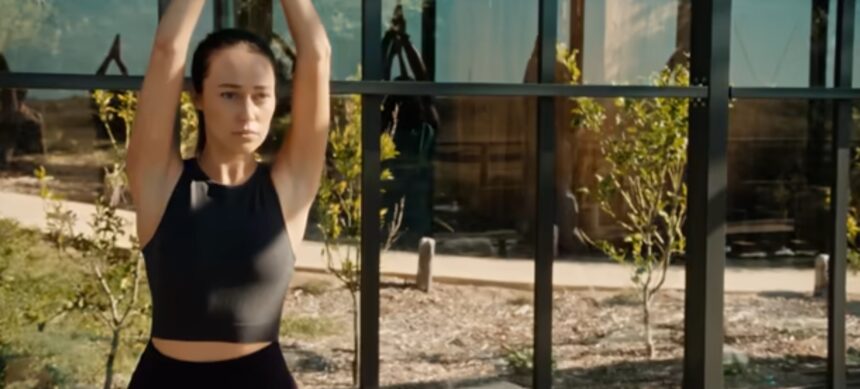Netflix has once again captivated audiences with its shocking limited series, Apple Cider Vinegar, which delves into the true story of Belle Gibson, an Australian influencer who built an empire on false health claims. The series has ignited conversations around the dangers of misinformation in the wellness industry, revealing how social media personalities can manipulate desperate individuals seeking alternative treatments. With a riveting narrative that intertwines real-life deception with fictional elements, Apple Cider Vinegar is more than just a drama—it’s a cautionary tale that exposes the dark underbelly of the health and wellness movement. In this in-depth exploration, we will uncover the true story behind Belle Gibson, analyze how Netflix brings this scandal to life, and examine the broader implications of misinformation in the digital age.
At the center of this jaw-dropping scandal is Belle Gibson, an Australian influencer who rose to fame with claims that she had cured her terminal brain cancer through diet, holistic remedies, and alternative treatments. Her story resonated with millions, leading to the creation of her app, The Whole Pantry, and a lucrative book deal with Penguin. However, in 2015, investigative journalists Beau Donelly and Nick Toscano unraveled her deception, revealing that Gibson had never been diagnosed with cancer. She had fabricated her illness, profited off false hope, and exploited the trust of vulnerable people seeking alternative treatments.
Gibson’s success was largely fueled by social media, where she cultivated an image of a brave, resilient woman battling terminal illness through “natural” means. Her engaging content, filled with recipes, self-care tips, and motivational stories, resonated with people disillusioned by conventional medicine. Her story became so compelling and believable that major brands, including Apple and Penguin Publishing, partnered with her to promote her app and book. She quickly amassed a global following, positioning herself as a leading voice in the alternative health movement.
Despite her massive success, cracks in her story began to emerge. Journalists started questioning her medical records, and former associates expressed doubts about the legitimacy of her claims. When she failed to provide evidence of her diagnosis, her entire empire crumbled overnight. In 2017, an Australian court found her guilty of misleading conduct, and she was fined $410,000 AUD for deceiving the public. Though she largely disappeared from the public eye, the damage she caused—both financially and emotionally to those who believed in her—remains.
Netflix’s adaptation, Apple Cider Vinegar, brings this chilling true story to the screen, blending fact with fiction to create an engaging yet unsettling portrayal of the dangers of wellness misinformation. Starring Kaitlyn Dever as Belle Gibson, the series reconstructs her rise and fall, offering a raw and unfiltered look at the manipulative tactics she used to deceive the world. What sets this series apart from other true crime dramas is its inclusion of a fictional character, Milla Blake (Alycia Debnam-Carey), a wellness influencer who genuinely suffers from a life-threatening illness. This contrast between authenticity and deception highlights a crucial message: not all wellness influencers are fraudulent, but misinformation can be deadly.
Netflix takes a bold approach by not just telling Gibson’s story, but also exploring the psychological and social factors that allowed her deception to thrive. The series raises thought-provoking questions: Why do people gravitate toward alternative health remedies, even in the absence of scientific evidence? How do social media platforms enable the spread of false health claims? What responsibilities do companies and publishers have in verifying the credibility of influencers? Through compelling storytelling, Apple Cider Vinegar forces viewers to confront the realities of wellness culture, where unverified claims can lead to real harm.
The series comes at a critical time, as misinformation about health and wellness continues to spread rapidly online. With the rise of anti-vaccine movements, pseudoscience-based treatments, and “miracle cures”, it’s more important than ever to question the credibility of health influencers. Several factors contribute to the widespread belief in unproven health claims. Many people feel frustrated by the limitations of modern medicine and turn to alternative treatments for hope. Emotional narratives, like Belle Gibson’s fabricated journey, resonate more than cold, hard facts. Platforms like Instagram, TikTok, and YouTube amplify unverified health advice, making it easy for misinformation to spread. Many influencers and even Hollywood celebrities promote alternative health trends, giving them false credibility.
While Belle Gibson’s case is extreme, it is far from unique. Misinformation in the wellness industry has led to serious consequences, including people abandoning conventional treatments in favor of unproven remedies, financial exploitation where individuals spend thousands on ineffective “cures,” and unnecessary health complications, and in some cases, avoidable deaths. This is why Netflix’s Apple Cider Vinegar serves as a crucial warning about the dangers of blindly following wellness influencers.
In light of this series, here are some important takeaways for consumers. Always check whether a health claim comes from a credible medical professional or a self-proclaimed wellness guru. If a treatment or remedy isn’t backed by peer-reviewed studies, be skeptical. If someone promises a miracle cure, it’s likely a scam. Use reputable sources like the CDC, WHO, or medical journals to verify claims. Influencers often use emotional storytelling, urgency, and social proof to sell their ideas—don’t be swayed by popularity alone.
Netflix’s Apple Cider Vinegar is more than just a true-crime drama—it’s a wake-up call. In an era where wellness trends dominate social media, this series reminds us that not everything we see online is true. With powerful performances, gripping storytelling, and a socially relevant message, Apple Cider Vinegar is a must-watch for anyone who has ever felt tempted to trust an influencer’s health advice over medical science. Will this series change how people view wellness influencers? Only time will tell. But one thing is clear: critical thinking is more important than ever in the digital age.






